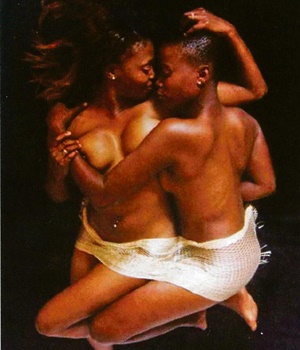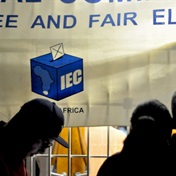
President Jacob Zuma once heaped effusive praise on Mexican journalists for their patriotism. There is plenty of crime in Mexico, he said, but on his visit to that country he learned that it was hardly ever reported in the newspapers because Mexican media are patriotic and do not want to repel investors and tourists by reporting negatively on their country.
South African journalism should take a page from its Mexican counterpart and be more patriotic; South African media should cease dwelling on crime, he said.
The President either misread or was misinformed about Mexican media – violent crime is the staple of Mexico’s prensa roja or red press. There are even tabloids dedicated to drug wars detailing the power and influence that the kingpins exercise even when incarcerated in prison fortresses. But President Zuma’s misinformation is not the concern of my discussion in this paper.
I want to address the question of whether South Africa needs patriotic journalism or not, especially because the President keeps on harping on this issue. He has advanced this notion once more recently during the xenophobic attacks in South Africa when The Sunday Times led with photographs of a fatal assault of a Mozambican vendor by local thugs in Alexander. Zuma said it was unpatriotic of the newspaper to carry such a story and pictures.
I have an immediate answer to the question as to whether we need patriotic journalism. It is a resounding yes, provided we redefine patriotism. Is South African journalism unpatriotic? A resounding no! And I’ll tell you why.
Perhaps I should begin by explicating the competing versions of patriotism, because its meaning can be problematic if not contentious. For instance, Samuel Johnson (1709-1784) viewed it as the last refuge of a scoundrel. As it was in his time, it continues to be today.
When constrained by moral limits patriotism can serve the positive function of giving people a sense of personal belonging and identification, and can therefore facilitate mobilisation for the common good. But without moral checkpoints it can be abused by the ruling elite to oppress and marginalise sectors of the populace, and to silence criticism.
Its dictionary definition may be innocuous enough – devoted love, support and defense of one’s country; national loyalty – yet its implications are wide in their toxicity.
For instance, in the politician’s view national loyalty encompasses unconditional loyalty to its leaders. The exposure of their flaws, not the flaws themselves, causes embarrassment for the country, and therefore is unpatriotic. Loyalists often rally around corrupt and dangerous politicians in the name of patriotism.
In the United States, a country famous for its patriotism, the Dixie Chicks present a good example of a toxic version of patriotism. The members of this Texan country music band were punished for expressing their regret that President George Bush was also from Texas. The problem was not that they expressed such a sentiment at all, but that they did so when they were abroad.
They were therefore deemed to be unpatriotic even though their criticism was not directed at the country but at a specific politician who they felt had betrayed the country by taking it to an unnecessary war against the country’s national interests.
The women of the Dixie Chicks were taken to task, not by the government, but by their compatriots who exercised their right to boycott the “traitors” – the fans stopped purchasing the band’s music and disc jockeys withdrew it from radio station playlists. But the citizen’s rage went beyond that; they smashed and crushed the band’s compact discs with bulldozers at the public square. This illustrates how hegemonic patriotism can be.
Today most Americans share the view that the war against Iraq was unnecessary and a big mistake. But that is cold comfort to the Dixie Chicks; it will not redeem them from the oblivion to which they were consigned by the initial boycott.
National loyalty also implies hostility to people of other nations. As a patriot you must promote your country while diminishing others. You must place the well-being of your country above the well-being of the rest of humanity.
I am talking here of the version of patriotism that is not constrained by moral limits, and that therefore becomes jingoistic. It is a destructive patriotism that acts as a vehicle for narrow nationalism and ethnic chauvinism.
It fuels xenophobia and fans the flames of war. We have seen in South Africa how patriots who felt they were safeguarding their country from being tainted by foreign elements attacked, murdered, immolated, those they perceived to have darker complexions and different accents.
Patriotism is closely linked to war. Jingoism even more so. The jingoist sees others, those who were placed on a different piece of ground by accident of birth, as the enemy and therefore less than human. Jingoism is a demeaning and dehumanising tool. It is sustained by and sustains the slogan: my country right or wrong.
Worst of all, it nourishes the myth of a divinely chosen people, the mass delusion that God is on your particular country’s side solely because you happen to be born in it. Your country is therefore always on the side of righteousness even as it bombs to smithereens women, children, families, babies and wedding parties with unmanned drones.
When politicians talk of patriotism they mean this toxic and dangerous version – the one they can manipulate to tame and domesticate the populace. Politicians appeal to patriotism to bring about compliance with laws, traditions and practices that may be more in the interests of the ruling elites than of the people.
In addition to your country right or wrong, the ethos of state-sponsored patriotism is love your country, its government, its culture, and its values as professed and interpreted by your political leaders in power.
This is the patriotism that gave birth to the slogans of social cohesion and nation building as we hear them articulated in South Africa to the detriment of freedom of expression.
These innocuous concepts which may be intrinsically positive become dangerous when politicians and servants of the state are the sole arbiters of what comprises social cohesion or nation building. Thus we see a politician, a minister of arts and culture no less, condemning the work of an internationally celebrated photographer who has exhibited works of art portraying women in embrace and other works that make queer faces and bodies visible.
These photographs, by Zanele Muholi who is also a gay rights activist, have been exhibited in many cities of the world to great acclaim. I saw them at an exhibition in Bayreuth, Germany, where they left patrons mesmerised by their aesthetic depth and beauty.
But in a liberated South Africa a brazen politician, Ms Lulu Xingwana – then arts and culture minister, decrees that this art contradicts the values of social cohesion and nation building.
This cabinet minister assumes the role of sole arbiter and makes such pronouncements that are a reflection of her own personal values, and these automatically become national values, even though they are contrary to the values of freedom of expression that are enshrined in the Constitution – the very Constitution that permits same-sex love.
In the name of patriotism the state decrees that relevant art must contribute to national cohesion and nation building, and artists who do not subscribe to this notion, or who have a different comprehension of the meaning and application of these tenets are considered unpatriotic.
This is the kind of patriotism that becomes a refuge for corrupt politicians. The said politicians are constrained by the constitution from outrightly bludgeoning the media and banning newspapers in the manner that apartheid did. They therefore resort to firstly encourage self-censorship. When that cajoling fails they demand self-censorship, and then coerce it through blackmail and threats.
There is, however, a different conceptualisation of patriotism that embraces critical love of one’s country and rejects unconditional loyalty. It was once outlined by Senator J. William Fulbright of the United States when he wrote: “To criticise one’s country is to do it a service and pay it a compliment. It is a service because it may spur the country to do better than it is doing… Criticism, in short, is more than a right; it is an act of patriotism – a higher form of patriotism, I believe, than the familiar rituals and national adulation.”
In this higher patriotism – and this is what I’ll call it henceforth to distinguish it from the garden-variety patriotism that Zuma is demanding from the South African media – the citizens care so much for the well-being of their country that they are vocal in their criticism when they think politicians, civil servants and other fellow-citizens are causing it harm.
Higher patriotism does not mean the citizen disowns and disavows patriotism’s trappings that the populace has been socialised to regard as sacrosanct. It simply means these trappings do not constitute blindness to the country’s flaws as they do to a jingoist. By his own admission Zuma is hostile to higher patriotism. He would rather have a one-sided presentation of news in favour of the state, and thus maintain a patriotic hegemonic discourse.
In a democratic state it is imperative that the media play a watchdog role. It was not for nothing that the press used to be called the fourth-estate – the informal self-appointed independent fourth branch of government that monitors on behalf of the voiceless the other three branches so that they do not abuse their power.
Patriotic media (in Zuma sense of uncritical patriotism) cannot effectively act as a watchdog over government. Democracy cannot function without freedom of expression in general and of the media in particular.The country’s media – especially the print media or press, as it is traditionally known – have been very effective in their watchdog role.
Independent radio has also been good in taking up issues that have been exposed by the press and then pursuing them, exposing a different demographic to the debate. Undoubtedly Zuma wishes Mail and Guardian had been patriotic enough not to expose his government’s misuse of taxpayers’ money to refurbish and extend his private residence under the pretext of installing lawful security upgrades.
The Nkandla scandal will be the albatross hanging at his neck for the rest of his tenure in office and will haunt him even in his retirement, further tainting his legacy that is already highly blemished by many other untoward activities and antisocial behaviors.
Mda is an author
This is part I of II of a series that Mda wrote on whether do we need patriotic journalism




 Publications
Publications
 Partners
Partners








